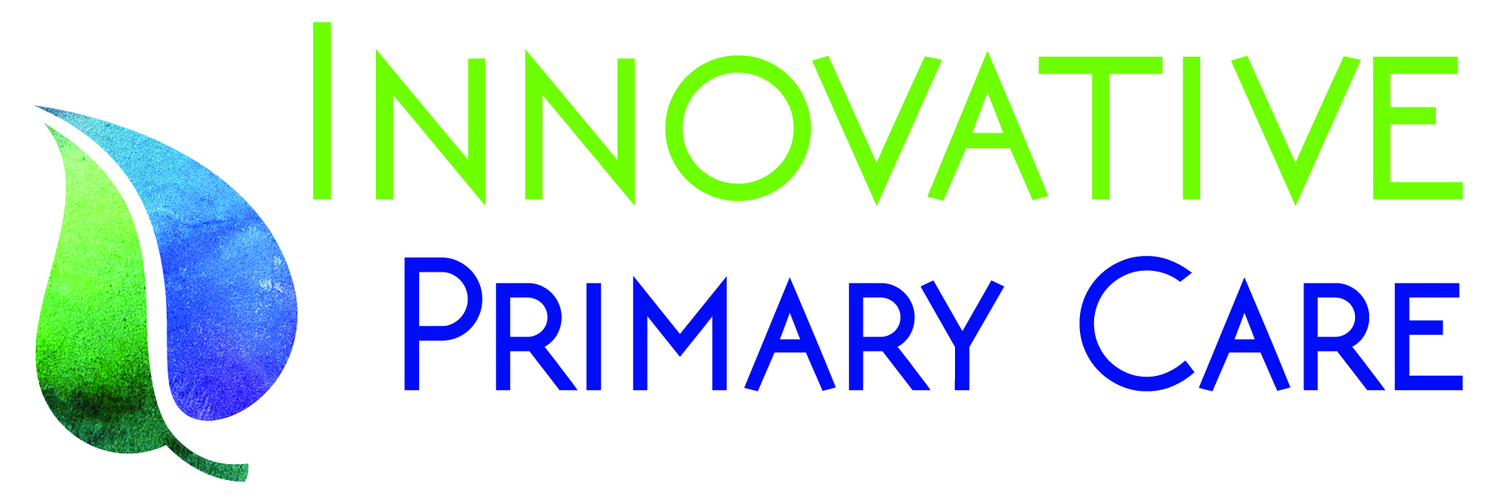Healing a Hurting Belly
/If you have irritable bowel syndrome (IBS), you are not alone - IBS is common with worldwide prevalence estimated at 9% to 23%. Yet many people remain undiagnosed and unaware that their symptoms indicate a medically recognized disorder.
You may have IBS if you experience any of these conditions: abdominal pain, constipation or diarrhea, hypersecretion of colonic mucus, flatulence, nausea or anorexia, and varying degrees of anxiety or depression. While many other conditions may mimic the symptoms of IBS and should be ruled out by your provider, there are several things you can do to decrease discomfort and symptoms right now.
Innovative Primary Care providers share four important tips that may allow those experiencing IBS symptoms to experience some relief.
#1 Increase dietary fiber
Dietary fiber and complex carbohydrates (foods found in their whole form that have not been refined) are useful in normalizing bowel function. Patients with diarrhea may be aggravated with the initial introduction of dietary fiber. The best types of fiber to include are water-soluble fiber found in vegetables, fruits, oat bran, guar, legumes (beans and peas), and psyllium seed powder. Though wheat and other grains are an excellent form of fiber, they aren't appropriate for anyone with allergic conditions.
#2 Eliminate allergic/intolerant foods
Research shows a high correlation between patients with IBS and food allergies and/or single or multiple intolerances. Roughly two thirds of patients have some type of food intolerance or allergy. Therefore, it is imperative that patients address these causes and eliminate the offending agents. There are a variety of tests that may be used but the gold standard of testing involves the use of a six-week elimination diet, during which time a hypoallergenic diet is followed. After 6 weeks, foods are reintroduced one at a time every 3 days. If you are interested in participating in a six-week elimination diet, please speak with your provider first.
#3 Address psychological components
Most patients with IBS complain of some mental/emotional problems such as depression, insomnia, fatigue, and anxiety. Increased contractions of the colon have been shown to occur in patients with IBS in response to stressful situations. Various methods of treatment that may be helpful include biofeedback, short-term individual counseling or guided imagery. Suggested IBS relaxation techniques can be found here.
#4 Include use of herbal/nutritional therapies
Research has found a number of botanical and nutritional supplements helpful in the treatment of IBS. Peppermint oil has been used to inhibit GI contractions and relieve abdominal pain and gas. Additional herbs that have been used to treat the symptoms of IBS include chamomile, valerian, rosemary, slippery elm, and lemon balm. Nutritional supplements such as glutamine, beta-carotene, and zinc aid in the healing of the intestinal mucosa are also important to include in the treatment of IBS.
Finally, and most importantly, your diet will affect IBS symptoms. We suggest include the following foods in your diet:
- Baked apples
- Potatoes
- Steamed/baked vegetables all kinds
- Brown rice
- Millet
- Oatmeal
- Soy beans, split peas, lentil
- Kidney beans
- Spelt flour products
- Oat bran
Conversely, there are numerous foods you may have already learned impact your IBS. We urge you to consider avoiding these items:
- Raw foods
- Vinegar
- Spicy foods, peppers (red & black)
- Coffee, black tea
- Alcohol
- Mustard
- Cheese
- Milk
- Beef
- Pork
- Wheat flours (includes white flour)
- Sugar and sugar desserts
For more tips on everything from how to support a partner experiencing IBS to help for children with IBS, visit the International Foundation for Functional Gastrointestinal Disorders.

